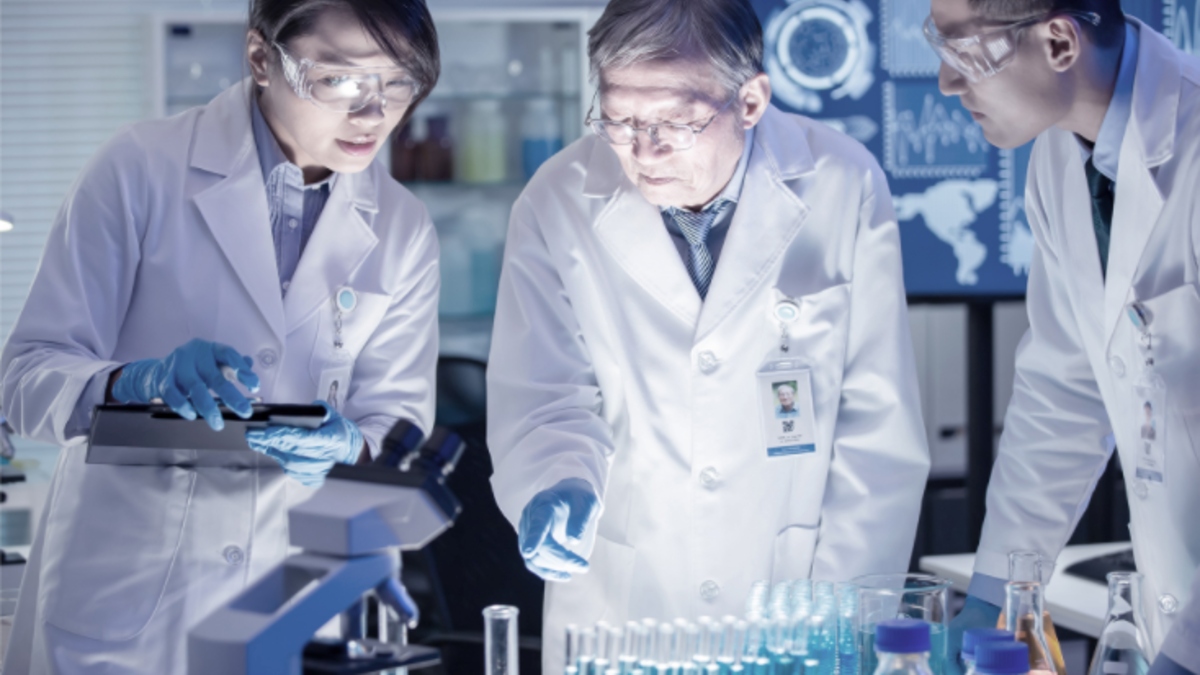For all the raucous politicking that goes on in the city, Hong Kong is – perhaps surprisingly – one of the cities in the world most suited for consolidated biotech innovation. And there is perhaps no better moment than the Covid-19 crisis for this to be established.
Hong Kong’s biotech industry has played a pivotal role in spearheading the development of accurate tests, production of masks and prospective vaccine research, with the former two instrumental in supporting neighboring countries in their responses to the pandemic.
Various reasons make Hong Kong uniquely well-equipped for ground-breaking scientific research.
First, Hong Kong provides a unique, well-structured and lucrative source of capital for bio-med innovation. As the world’s second-largest biotech fundraising center as of early 2020, Hong Kong’s Stock Exchange has raised more than HK$39.7 billion (US$5.12 billion) for the Initial Public Offerings of biotech corporations.
InnoCare Pharma
Just four months ago, InnoCare Pharma (a leading medico-pharmaceutical company targeting cancer treatment and drug research) was listed, following a long roster of mainland Chinese firms such as Shanghai Junshi and Hua Medicine being incorporated into the thriving biomedical financial scene in Hong Kong.
Despite the global economic downturn, the Hang Seng Healthcare Index has risen by 8.9% since January 2020, in contrast with the 12.6% decline in the Hang Seng Index.
Corporations have seen their stocks make substantial gains since their IPOs. CanSino, for instance, has seen its share price rise by 648%.
All of this is to say that notwithstanding the political unrest, Hong Kong remains an abundant pool of ardent investors (blue sky investment, in particular), eager to support initiatives that may not materialize with significant revenue in the short run but could yield substantial medium to long-term gains.
The conglomerates mentioned above serve as pivotal points for international investors to access the Chinese biomedical markets.
Foreign investors acquire a steady yield for their input through cross-border collaborations and partnership programs and the influx of capital into the legally robust and systemically well-governed financial systems in Hong Kong. Leading scientists in Hong Kong find the liquidity to weather the murky waters of cutting-edge medical research. It’s a win-win for all.
Experience
Secondly, Hong Kong houses some of the most experienced and well-endowed biomedical companies in the world. Hai Kang Life Corporation, established in 1999, played a pivotal role in producing tests for global pandemics in the past, including for SARS in 2003.
The corporation is now advocating “sample pooling”, a pioneering technique that would, with precise testing capacities, significantly expedite testing for Covid-19. By putting together 10 to 20 samples of possibly infected individuals, this method enables accelerated and more targeted testing at far lower costs.
Hai Kang is only the tip of a far greater iceberg involving entities such as the Hong Kong-Bio Med Innotech Association and the eponymous BioMed Technology Holdings Ltd. A vast number of these companies are stationed at Science Park, with personnel recruited from the nearby Chinese University of Hong Kong.
It behooves the Hong Kong administration to genuinely look into how Hong Kong could be made a more attractive destination for foreign talent, but also to seek further integration in cross-border personnel exchange. Having Hong Kong students work for leading STEM corporations in the mainland would enlighten them about the rapid developments across the border
On the other hand, the government could ameliorate the strict immigration restrictions and allow for the much-needed influx of mainland Chinese talents, in providing both technical knowledge and expertise from working within a far vaster and more complex ecosystem to the north.
Finally, Hong Kongers are uniquely entrepreneurial in their spirit and ethos. From pioneering and serving as role models for the Special Economic Zones in the mainland in the 1980s, to decades of liaising between East and West whilst serving as the buffer zone for different cultures, Hong Kongers have historically excelled at bringing different parties and stakeholders together.
This should be no exception when it comes to the city’s contributions to global efforts against Covid-19. It is high time for our government to work closely with its thriving biomedical sector, in connecting it with prospective investors and its regional and international counterparts.
There remain great hurdles in the way of medium-scale biomedical boutiques as they explore potential markets or talents to recruit. It falls upon our government to take this task seriously and to actively resolve the red tape that stands between Hong Kong’s deep pool of scientific talents and the world at large.
Hong Kong does have a future – in its biomedical technology, at least. The Covid-19 crisis offers a crucial window for Hong Kong to prove itself. Will we?
























